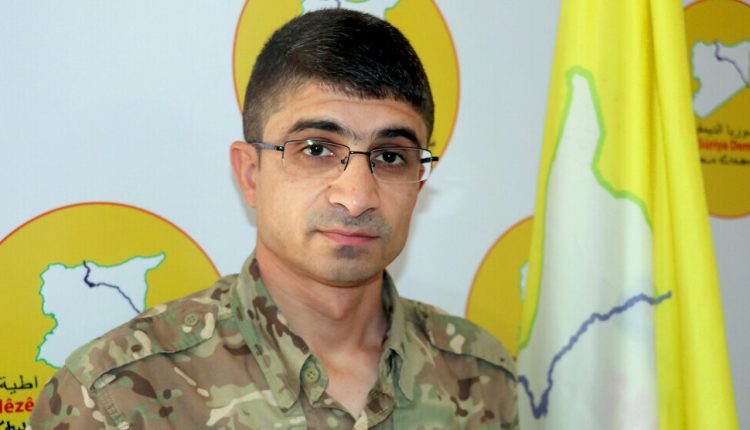Turkey seeks to obstruct dialogue with Syrian government – SDF Media Head
QAMISHLI, Syria (North Press) – Farhad Shami, Head of the Media Center for the Syrian Democratic Forces (SDF), said on Thursday that Turkey is seeking to obstruct “constructive dialogues” between the SDF and Syria’s new administration, pointing to Turkish pressure on the Damascus government.
In a written statement to North Press, Shami added that the discussions with Damascus are ongoing, beneficial, and necessary. “We are working to ensure these dialogues are continuous, based on mutual respect, and essential for achieving peace and stability,” he said.
On the eve of his visit to Turkey, Syria’s Transitional President Ahmad al-Sharaa told Syria TV about ongoing negotiations with the SDF to resolve the northeastern Syria issue, noting that “he refrains from disclosing details about the negotiations because there are countries that do not want them to succeed.”
Meanwhile, Shami stated, “There are malicious parties who oppose these dialogues and are working to sabotage them. We were at an advanced stage of resolving issues related to predominantly Kurdish neighborhoods in Aleppo, and the new administration was receptive to dialogue with strong points of agreement. However, we have been informed that Turkey intervened and prevented the signing of the agreement between us and the Damascus administration.”
Late 2024, al-Sharaa met with SDF’s Commander in Chief Mazloum Abdi, and both sides stressed the necessity of continuing meetings and dialogues.
An official from the Syrian Democratic Council (SDC) told North Press that the two sides agreed to form joint committees—security, military, economic, and administrative—to resolve the outstanding disputes.
Shami also commented on the Turkish pressure on the new administration, “We want to help it reach an independent Syrian decision, and to do that, we need all national voices that reject Turkish domination.”
“Trained National Army”
Shami pointed out that the integration of SDF forces into the Syrian army would be a strength for that army. The entry of the SDF would not be solely military but would also have popular, social, and economic dimensions, significantly impacting the present and future of Syria.
Earlier, al-Sharaa stated that the SDF has expressed its readiness to limit arms in the hands of the state, though there is a partial disagreement, without providing further details.
Shami noted, “Turkey will not build an army in Syria but rather militias affiliated with it. The best it will offer is an army composed of factions that fight among themselves daily over theft, killing, and terrorizing people. Throughout the years, Turkey has provided nothing but chaotic factions and mercenaries.”
He further pointed out that Syria’s outreach to active Arab countries such as Saudi Arabia, Jordan, and the UAE could help create a well-trained national army. “We must be cautious of Turkish attempts to turn Syria into a front against Arab countries, especially the Gulf states.”
Referring to the “Victory Conference” at which al-Sharaa was appointed president of the transitional phase in Syria, Shami remarked that some of those present were “war criminals who should have been arrested and tried rather than promoted. They have committed hundreds of documented crimes—murder, theft, and rape—and are listed on international sanctions lists. The international community is aware of and documenting their criminality and terrorism, and we will continue to pursue them.”
SDF, U.S. Forces
Addressing reports about U.S. plans to withdraw from Syria, the head of SDF’s Media Center said that American forces in the region remain determined to continue working with the SDF in the fight against the Islamic (ISIS), adding, “We have not received any report of a withdrawal.”
He characterized important news not issued by official institutions as “fake and fabricated,” and added that they will receive updates on the U.S. plans in the coming period.
“We have many friends who show respect for our forces and our people in the struggle against ISIS. They are distressed by the Turkish attacks and their mercenaries in our areas and are trying to stop them.”
In another context, Shami asserted that northeastern Syria now enjoys a high political standing and is capable of self-administration, countering the marginalization that had been imposed on it by successive Syrian administrations that viewed the region as remote and incapable of development.
He concluded by noting that the transitional administration in Damascus “must recognize this change and approach the region with its true identity and fair representation in politics and governance.”

